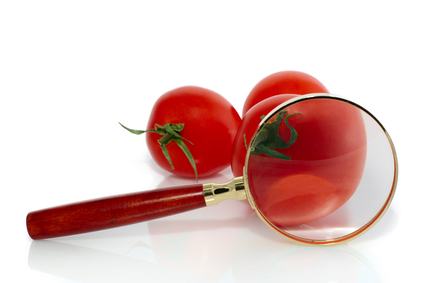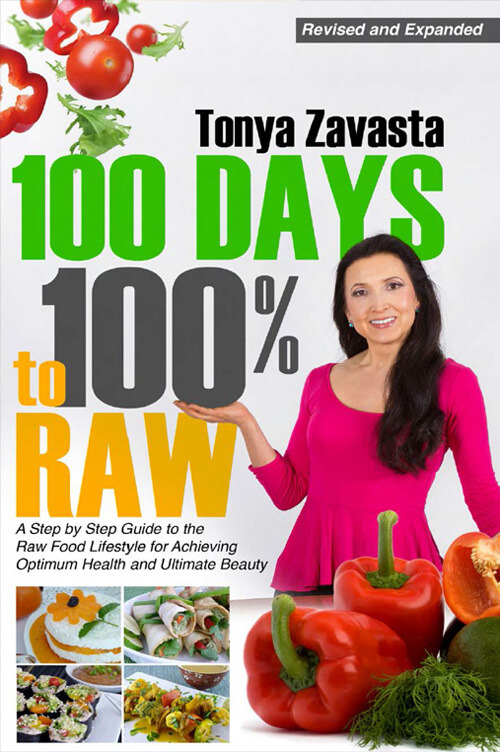Arguments Against the Raw Food Diet: Opposing the Opposition

Argument 1: “Cooking Makes Beta-Carotene and Lycopene More Available.”
Take the ordinary carrot or your basic tomato, as examples. Conventional nutritional science says: Cooking carrots makes their beta-carotene more available for the body to absorb—‘bio-availability,’ it’s called. Cooking tomatoes makes the antioxidant lycopene five times more available.
And so what? If you were eating only one carrot a week, that bio-availability issue would be a big deal. But don’t forget the obvious: Raw foodists eat raw foods. Lots of raw foods. Including carrots and tomatoes. The fruits and vegetables in our diet deliver abundant beta-carotene. The proof is literally staring us in a face. (Enough, indeed, to impart a faintly orange-ish skin undertone, which adds a measure of attractiveness and apparent health, in the view of many. I have written about carotenoids and skin color in this blog article .
And, as to lycopene, do we really need more than a solid, healthy diet’s worth of raw vegetables can yield? This isn’t the place to debate biochemistry, nor am I qualified to do so. In any case, my quarrel is not with bioavailability studies, but with their interpretation, their use. Again that simplistic approach that more is better. It is one thing to prove that a cooked tomato yields more lycopene than a raw tomato. It would be quite another thing to demonstrate that a sound raw diet doesn’t deliver enough lycopene. Indeed, the visibly better health of people who eat raw foods would seem to point the other way.
Then there’s this … Can you get too much lycopene? That, it seems, hasn’t been investigated either.
And let us not forget there are important nutrients that are lost through cooking, such as Vitamin C, which is highly unstable and gets destroyed by exposure to heat.
Argument 2: “Our Bodies Produce Their Own Enzymes to Digest Cooked Food.”
Cooking destroys food enzymes—that we know. Enzymes are needed for digestion. Conventional nutrition—now on the defensive, you’ll note—says: “That’s okay, as long as the body produces its own enzymes.” The trouble: There’s already evidence that cooked food cannot be thoroughly digested by our own enzymes alone (See my newsletter article about Alexander Ugolev’s famous frog experiment).
Argument 3: “Dietary Detoxification is an Alternative Medicine Concept with Little Scientific Credibility.”
This is a commonly heard quote from the camp of conventional nutrition. Translation: We’re all quacks. Before you get your hackles up, consider the truth at the core of this statement. First, the raw lifestyle is alternative medicine. It’s an alternative to the “ordinary” diet of burgers, mashed potatoes from a box, soup in a can, and all the other cooked, processed, modified stuff that’s made the USA the sickest nation on earth. Yeah—I’ll take an alternative! That said, one has only to take a look at the bodies of so many North Americans, toxin-ridden, dead cells abounding, and the effects this toxicity has been showing on our outer surfaces.
We have too long been stuffing ourselves with foods devoid of life, giving our bodies no real chance to eliminate not only unassimilated food, but also the products of our own cell metabolism. With time, more and more waste products accumulate both within the cells (lipofusin, for example), and in the spaces between cells (beta-amyloid, transthyretin, to mention just two). Whoever says detox is faux, probably never heard about that science.
I describe the process of waste accumulation in the body and the ways of eliminating it in more detail in my book Raw Food and Hot Yoga. By their nature, raw foods will assist us in eliminating unwanted deposits by freeing up the surplus energy that can be diverted from the process of digestion to the process of detoxification.
Clean foods … clean bodies … longer, more fulfilled lives. Don’t allow arguments that sound “scientific” to take you off the path of natural living foods. You can see where society at large has been heading in terms of diet and health. Decide which way you want to go.

